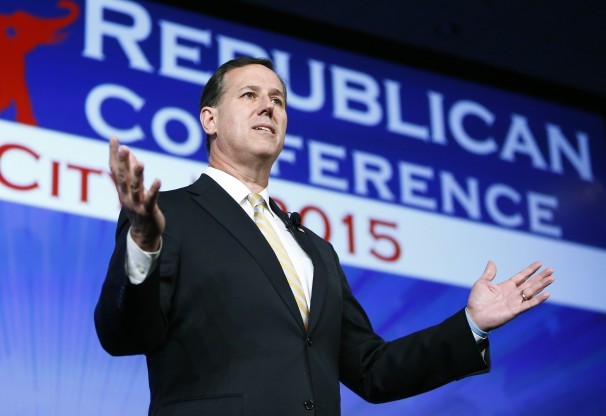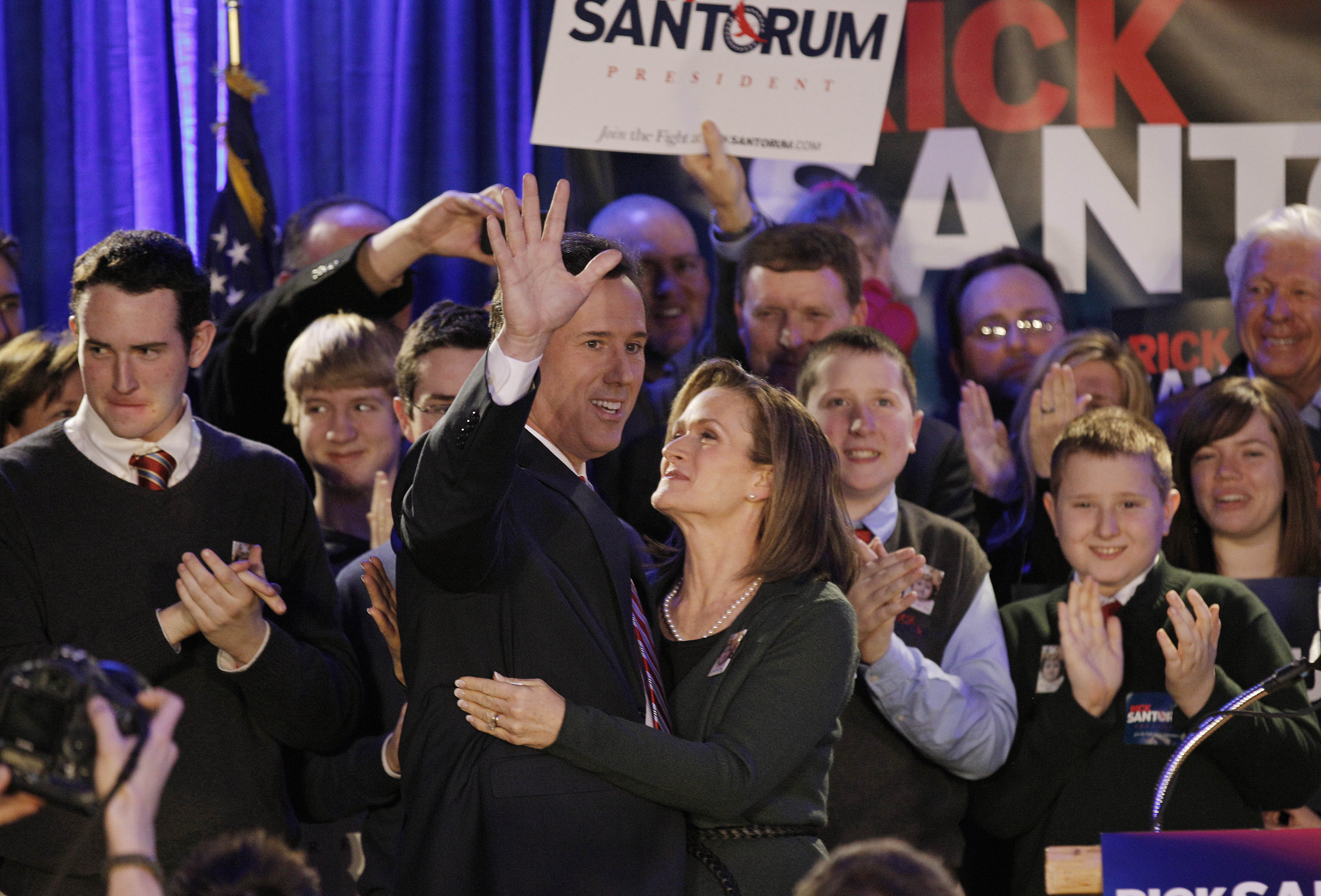
CLEVELAND — On Monday, before he joined the GOP presidential front-runners in a New Hampshire forum, former senator Rick Santorum arrived in the state for a town hall meeting. Fifteen people showed up to see him.
Jeanine Notter was not among them. The Republican state representative had endorsed Santorum (Pa.) for president in 2012. But her son needed a ride to the doctor’s office — and anyway, she had already endorsed Sen. Ted Cruz (Tex.).
I like Rick Santorum very much, but he’s only polling now at 1 percent,” Notter said. “He’s only raised $600,000, whereas Cruz has more support — and I just think Cruz is awesome. I was on a treadmill when he announced for president. He said, twice, ‘Give me liberty or give me death,’ and I said the next line out loud, right there in the gym. He really impresses me.
The subtext: Rick Santorum no longer does. Tuesday night brought the inevitable news that Santorum would not be included in the first prime-time debate here Thursday in Cleveland’s Quicken Loans Arena. Fox News would invite only the people who polled in the top 10 in an average of national polls. The man who won 11 state contests, more than any runner-up since Ronald Reagan in 1976 — a fact he enjoys sharing with audiences — was too far behind. He would be relegated to an afternoon showdown with minor candidates.
Even Dan Savage, the sex columnist who turned Santorum’s name into slang for something unprintable, has moved on. “He’s yesterday’s bigot,” Savage said.

Santorum has not concealed his disgust over being left out. “These national polls are irrelevant,” he told ABC News over the weekend. “I was at 1 percent in the national polls four years ago. I ended up winning 11 states, 4 million votes.” He spent 106 campaign days in Iowa, crawling from behind, and his victory even became the shaggy-dog story of a cult-favorite documentary. To come as far as he did, then be forced to debate Jim Gilmore, is like Rocky Balboa going 15 rounds with Apollo Creed in order to get an undercard bout against Spider Rico.
I just don’t consider him a factor,” said former Colorado congressman Tom Tancredo, a 2008 presidential candidate who endorsed Santorum in 2012. “I don’t even go to his Web site or anything like that. He’s like several others in the race who just don’t matter. On the Democratic side, he’s like what’s his name — Mahoney, from Maryland?”
The former Democratic governor of Maryland is named Martin O’Malley; unlike Santorum, he is running for the first time.
Yet the chits from Santorum’s 2012 run expired faster than he could have expected. “He won [the Iowa caucuses], I think,” said Sen. John McCain (R-Ariz.), who served with Santorum for his entire Senate career but endorsed Mitt Romney. “After that, it was not competitive.”
When reminded that Santorum in fact won 11 contests, McCain admitted that he had “forgotten most of the details” and learned in his two presidential bids that the primaries were unpredictable. “I’m sure he has a certain base of support. If he feels he wants to run, then, fine.”
McCain’s second run, or even Romney’s, was what Santorum hoped to emulate. When he campaigned for the 2008 nomination, McCain started as the front-runner, slipped, then won command of the race after New Hampshire voters gave him a comeback. Romney never really stopped running after he lost the nomination to McCain, and he spent 2011 as the clear leader in New Hampshire and a contender in Iowa.
Santorum has insisted that late-deciding caucus-goers will come back to him. Yet in the RealClearPolitics average of Iowa polls, Santorum is in 10th place.
The struggle became very real this past week as Santorum barnstormed Iowa. He made 13 campaign stops over three days: town hall meetings, speeches, meet-and-greets. (By comparison, Donald Trump has made two trips to the state in the first month of his campaign.) No one struggled to find a seat. A forum in Onawa, in a county that Santorum had won, drew just nine people. A roundtable in Fort Dodge drew 26.
Santorum had hoped to broaden his appeal beyond the party’s social-conservative base, which is now being fought over by former Arkansas governor Mike Huckabee and others. In speeches, he said that the 2012 nominee’s focus on “job creators” alienated a blue-collar vote that a certain son of Pennsylvania could have won.
But in 2015, Huckabee is joined by a bevy of social conservatives who are competing for the same backers. The conservative singer Pat Boone said that his “long friendship” with Huckabee persuaded him to abandon Santorum this time. The antiabortion Susan B. Anthony List, which endorsed Santorum before the hard-fought 2012 Michigan primary, was being courted and staying neutral.
It’s very unlikely that we will endorse anybody,” said Marjorie Dannenfelser, the president of the political action committee. “We never had before last time.” She said she would like Rick Santorum to be in the debate but would like to see Carly Fiorina and Sen. Lindsey O. Graham (R-S.C.) on the stage as well.
Occasionally, the lack of media and voter interest in his message has left Santorum arguing that history is on his side. “Since the convention era, the Republican Party has nominated people who checked one of three boxes,” Santorum said at a May 2015 cattle call hosted by Citizens United. “What are those three boxes? Number one: You were a vice president. Number two: You were the son of a former president. And number three: You came in second the last time, and ran again.
Santorum said that in South Carolina. Since the convention era, every Republican presidential nominee had won that state’s primary — until 2012, when Newt Gingrich beat Romney and Santorum in a rout. The voters had spoken. No record could last forever.
- Publish my comments...
- 0 Comments
